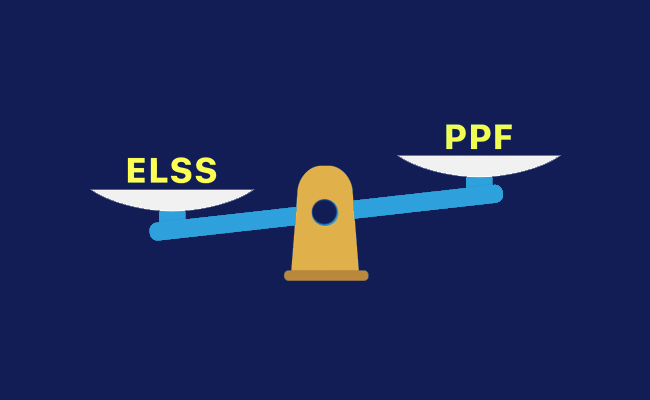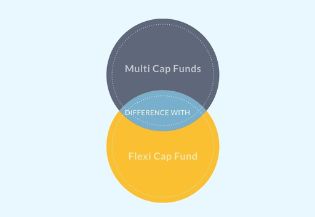
HELP LINE +91 9883818627

HELP LINE +91 9883818627






In a nutshell
Its tax saving season and fund distributors and fund houses are busy demonstrating lots of facts and figures to justify why ELSS funds are a better option than PPF for investing with Sec 80C benefits. The straight talking Brijesh however asks us to think carefully before rushing to this conclusion for all investors. There are several circumstances where as an advisor, you should actually recommend PPF over ELSS, just as there are enough circumstances where the reverse is true. Returns are not everything, and a one-size-fits-all approach is not the best way forward. Brijesh takes us through different circumstances and the right advice for each case. There is an eternal debate in the investment advisory community as to which product should be recommended for tax benefit u/s 80C. Product manufacturers will always have their interest in promoting ELSS to shore up their collections but it is upon investments advisors to make the right choice on behalf of their clients. ELSS are excellent products for long term investment and they provide tax benefit too. However, they have inherent risks too and cannot be compared with a debt investment. While ELSS have excellent track record and their future also looks promising, yet it may not always outscore PPF. Here is why :-Asset Allocation is important
It is important to suggest a proper asset allocation to clients. Debt & Equity forms an important part of asset allocation. All clients need to have some investment in debt as part of their overall asset allocation as well as long term savings. No matter who the client is, 100% exposure in equity is dangerous. Now, if some exposure needs to be made in debt; PPF may be a preferred choice. It qualifies for tax benefit at the time of investment and it provides tax free returns on withdrawal as well on maturity. It also provides partial periodic liquidity.PPF is best among debt instruments
If PPF is not considered as the first choice for debt allocation (except emergency funds and other short term needs), which other debt instrument comes close to it? In fact, none. Tax free bonds offer much lower interest. FD and other bonds are taxable. Debt mutual funds are close but non-guaranteed and taxable. Though returns in PPF are falling off late, they still compare well with FD rates. Considering tax benefits, they score much better. In future also, it is expected that returns in PPF will be quite comparable with other debt instruments. So, the question to ask is; if we are not recommending PPF, which other debt scheme we are recommending for the debt allocation of a client?Exposure to EPF
If an investor has a big exposure in employee provident fund and his debt allocation is being fulfilled entirely from EPF, he may excuse himself from PPF. However, in this case, the recommending ELSS against PPF also does not hold good because the client may not even need tax benefit on investment. In such case he can invest in non lock-in investments. It is seen that majority of salaried individual’s contribution is not much in EPF and they still need to invest in other products for tax benefit. PPF then becomes the 2nd best choice. Another situation where ELSS may make sense is where an investor’s total annual investment is up to or below Rs.1.50 lacs. In this case a 50/50 ratio between PPF and ELSS may be recommended as part of asset allocation strategy. Even in this case, 100% exposure in ELSS may not be the right thing to do.ELSS vs PPF comparison is not correct
We must compare apples with apple. ELSS is equity, PPF is debt. So, the returns comparison is not right. Also, assuming that a client will hold ELSS for 15 years is not reasonable. Holding period of normal equity funds (which is just a few years) can be good benchmark for this. When investors know there is liquidity in ELSS after 3 years, it may be difficult to control their behavior simply as it is difficult in case of normal equity funds in which they invest thinking about 20 years but redeem much before even though the advisor tries to convince them to hold. If they redeem ELSS before, it entails risk for retirement corpus and/or long term savings. Investor’s behavior must also be taken into consideration while advising on asset allocation and duration of investments.Tax free status on maturity
ELSS currently enjoys Long term capital gains benefit. However, it can go. While PPF also can lose its tax free maturity status, there is a greater possibility that government may maintain its EEE tax status for a much longer time in the future considering the mass investors money invested in it.Returns are not everything
Prudent financial planning gives a lot of weight to risk appetite of client and proper asset allocation. Though it is reasonable to expect that ELSS will outperform PPF over 15 years; still we can’t expose our client to higher risk unless their debt portfolio has been taken care of. Returns are important for not everything. Asset allocation takes precedence over returns.Commissions
Advisors do not make any commissions by suggesting PPF whereas selling ELSS is lucrative and this creates a conflict of interest. Still, we need to do what is best for the client. If they are happy, they will eventually take care of us.Conclusion
Each client is different. It is upto the investment advisor to choose the right product for their clients. ELSS are great products but a blanket recommendation of ELSS to all clients against PPF may not be the best advice.




















